Traditions and Customs of Chinese New Year
For Chinese people, Spring Festival means family reunion, visiting relatives and honoring ancestors. Purchasing for the Spring Festival, pasting spring couplets, setting off firecrackers, gathering for the reunion dinner, staying up on New Year's Eve, giving New Year's greetings, giving lucky money and going to the temple fair are traditions unique to the Chinese New Year. The Spring Festival in particular is a carnival for the public, during which all kinds of recreational activities are held, such as lion dance, dragon lantern dance, yangko dance and stilt walk, making the festival more joyous. Also, it is a festival to offer sacrifice to Heaven and pray for a good harvest, during which people thank gods for their care and pray for more blessings in a next year.
Cleaning
Cleaning before Chinese New Year has been a custom in China since ancient times. Every year before the Spring Festival, Chinese families would clean up their houses, appliances, bedclothes and curtains. Since the word ''dust'' is homophonic to ''old'' in Chinese language, people hope they can drive the bad luck or the old things away through cleaning. The custom shows Chinese people's wish to destroy the old and establish the new.
![]()
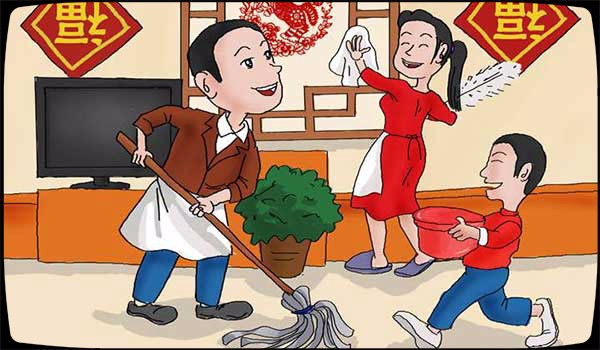
Shopping for the Spring Festival
During the Spring Festival, most of the markets would be closed, so purchasing before the festival is a cardinal task for Chinese families. The special purchases include basic necessities, gifts, and offerings. The process of purchasing New Year goods is called shopping for the Spring Festival.

Pasting Spring Couplets
The spring festival couplet, which describes the background of the times and expresses good wishes in neat, antithetical, concise and exquisite words, is a unique literary form of China. The traditional couplets are written manually with an ink brush. Nowadays, the printed spring festival couplets are also popular. Every Chinese New Year, the red couplets are displayed on the door frames of every urban and rural family and light up the festive atmosphere.
![]()
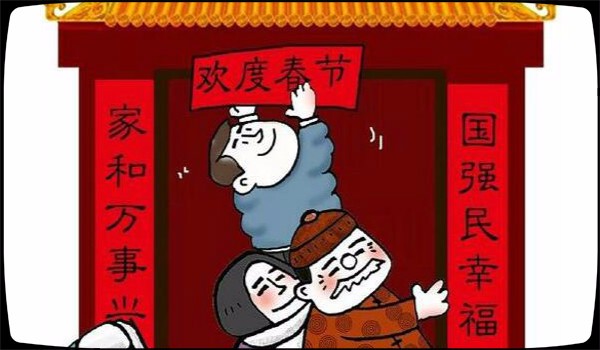
Pasting the ''Fu'' (福)
While pasting the spring festival couplets, people would paste all sizes of ''Fu'' characters (福) on their doors, walls and lintels. The character ''Fu'' means good fortune or happiness, showing people's yearning for the happy life and good wishes for the future. Some people even paste the ''Fu'' upside down for the meaning of arrival of good fortune.
![]()
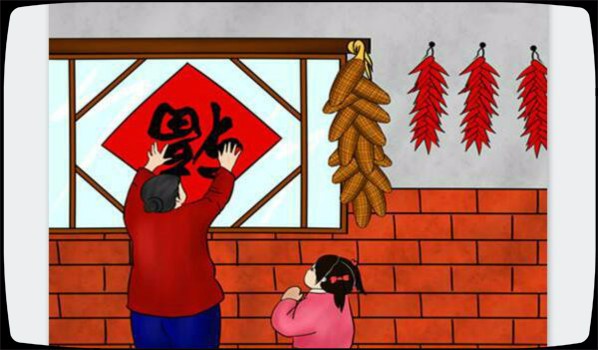
Paper Cuttings
Paper cutting, a popular folk art in China, has been deeply loved by people for thousands of years. Since it is generally pasted on the window, paper cutting is also named window paper-cut. Gluing paper-cuts is a traditional festival custom and people in many parts of China would decorate their windows with various window paper-cuts during the Chinese New Year.
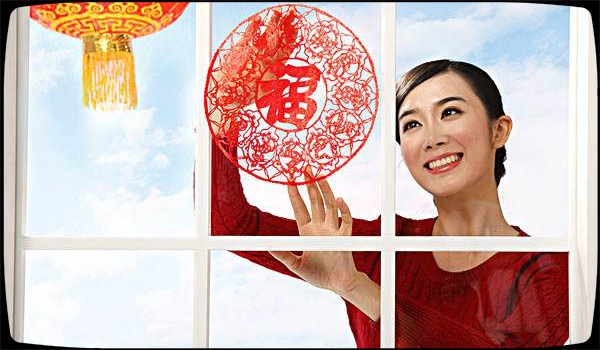
Pasting New Year Pictures
The New Year picture, a kind of Chinese painting, is an ancient folk art of Han Nationality in China. Same with spring festival couplets, it is derived from the Gate-God picture and is generally pasted during the Chinese New Year to decorate and pray for an auspicious new year.
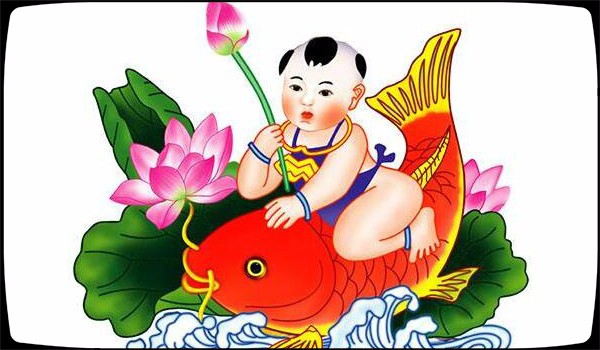
Pasting Door Gods (Menshen)
As a kind of painting pasted on the door during the Chinese New Year, the God of Door is the guardian widely worshipped in folk China and people paste the God of Door paintings to drive away evil spirits, protect the house, keep safe, and get more fame, profits and good luck. It’s popular in Chinese rural areas. The custom of pasting Door God paintings during the Spring Festival has been popular for thousands of years in China.
![]()
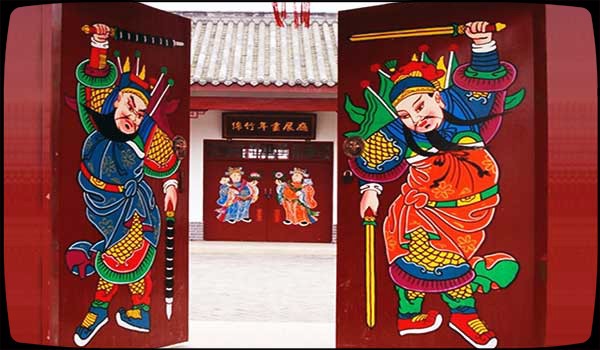
Hanging Lanterns
Before and after the Chinese New Year's Eve, people would hang red lanterns symbolizing reunion to create a festive atmosphere. On the New Year's Eve, red lanterns are found everywhere in streets and alleyways, which light up the festive atmosphere and bring people the enjoyment of beauty.
![]()

Setting off Firecrackers
Open Firecracker is a custom in folk China. The first thing for Chinese families on the morning of the first day is to set off firecrackers, so as to ring out the old year and usher in the new. Setting off firecrackers can create the festive atmosphere and bring people joy and luck, but the dust and smoke released pollute environment, and may start a fire, even cause the loss of life and personal injury. Now, many cities in China have banned fireworks and firecrackers.
![]()
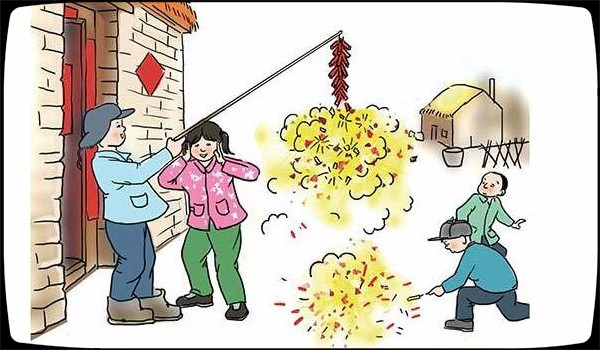
Reunion Dinner on New Year's Eve
The reunion dinner on New Year's Eve is the most cheerful event for Chinese families. On the New Year's Eve, the reunited family would gather to enjoy the sumptuous dishes on table. The annual reunion dinner fully displays the family members' mutual love and deep respect which bring the family closer together.
![]()
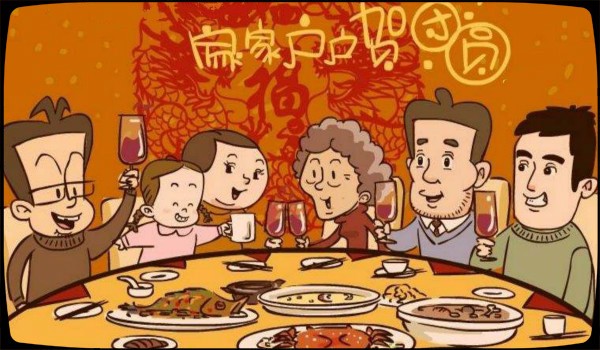
Staying Up on New Year's Eve
It is one of the most important traditional practices. On the New Year's Eve, the whole family gathers to enjoy the reunion dinner, watch the Spring Festival Gala and chat, waiting for the coming of a new year. Keeping awake the whole night is a symbol of driving away all the evil spirits and looking forward to a lucky and blessed new year.
![]()
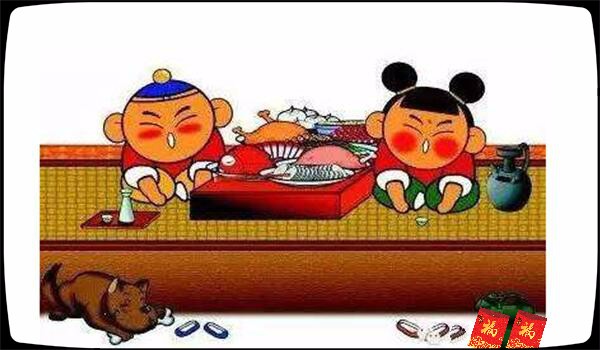
Paying New Year Visits to Relatives and Friends
On the first day of the Spring Festival, people would get up early, put on the most beautiful clothes and dress up to visit friends and relatives and say greetings like 'Xīnnián Kuàilè (meaning: Happy New Year) ' for good luck in a new year. During the visiting, the younger generation shall say greetings to the elder first and wish them a long life and good health. The children can receive a lot of money wrapped in red paper from the older generation after greeting them. Nowadays, some greetings are usually sent by telephone or through internet instead of going out.
![]()
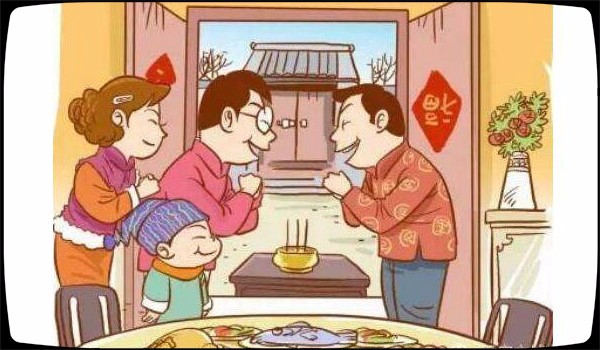
Eating Dumplings (Jiaozi)
Made with flours and stuffed with different fillings, dumplings (Jiaozi) is an indispensable food eaten on New Year's Eve and the first day of the New Year. Originated in Ming Dynasty (1368 - 1644 AD) and popular in Qing Dynasty (1644 - 1911 AD), eating dumplings means wealth in the coming year. Some people wrap coins, candy, peanuts, or chest nuts in dumplings. People who eat one will be blessed with different wishes, such as a coin for wealth, candy for sweet life, peanuts for health and longevity, and chestnuts for vigor.
![]()
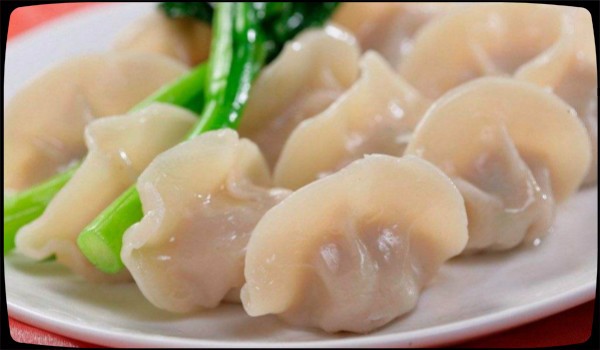
Red Envelop/Lucky Money
Red envelope is given from elders to juniors, showing their care for the juniors. Some people give the red envelops after the family reunion dinner and encourage their children and grandchildren to make progress and behave well in the coming year while some would give during the visiting. It is believed that the lucky money can protect the juniors from evil things and help them to spend a peaceful year.
![]()
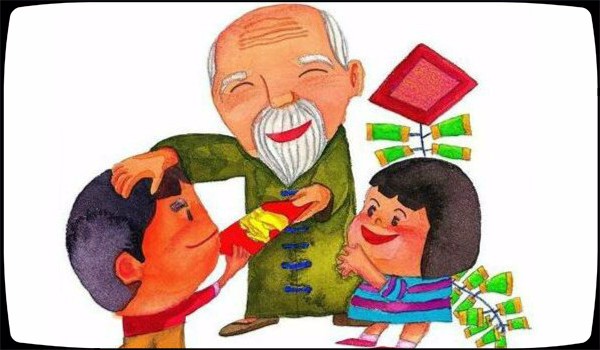
Worshiping Ancestors
The customs and forms of ancestor worship vary in China. Some people worship the ancestral tombs in the field while some in the ancestral temples; the most common practice is placing the memorial tablets of ancestors at the main hall with offerings and then adding incense and worshipping on bended knees in birth order. In some parts of China, people would visit graves on the New Year's Eve, generally in the afternoon, and bring the food prepared to the graves of the deceased relatives, so as to enjoy the dinner together and show their grief for the deceased.
![]()
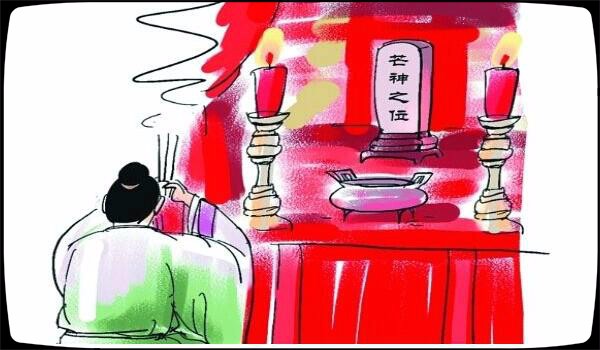
Visiting the Temple Fairs
The temple fair, usually held near a temple, consists of many activities, such as honoring the gods, entertainment and shopping. As a traditional festival custom in Chinese culture, it is often held during the Spring Festival and includes various local snacks, small wares and entertainment facilities. In a temple fair, people can enjoy the performance of land boat, yangko, lion and dragon dance, etc. Some of the temple fairs have their special performance. For example, the temple fair of the Temple of Earth in Beijing includes the show of the emperor offering sacrifice to the earth.
![]()

Dragon and Lion Dance
Dragon and lion dance is popular in the Spring Festival holidays and festive activities. Chinese people believe lion is an auspicious beast which symbolizes good luck and happiness and dragon is an ancient totem and auspicious sign which can bring rain and good luck and ward off calamities. The dragon and lion dance shows people's wish for safety, harvest, blessing and no ill fortune.
![]()
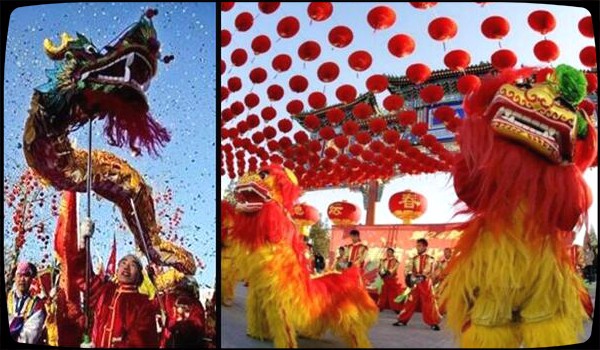
Yangko Dance
Yangko is a folk dance popular in China. In a Yangko Dance, the performers would put on the costumes of strong color contrast, including red, blue, yellow and green, and dance in the sound of gongs and drums to express their mood of pleasure and longing for a better life.
![]()
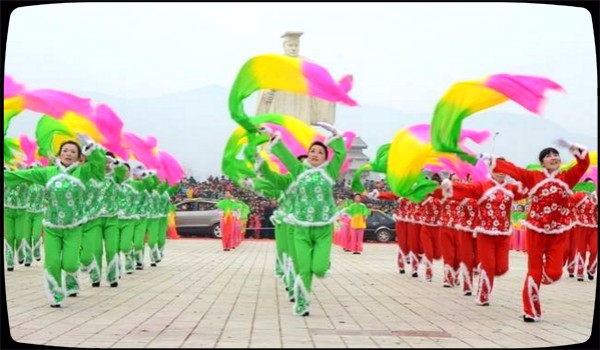
Stilt Walk
Stilt walk, also a popular folk art performance in China, is mainly held during the Spring Festival. The skilled performers would put on the costumes, dress up and tie stilts on their legs to perform in the square. The performers on stilts are taller than the average, making it easy to watch and convenient to move like a flexible stage. As a result, the stilt walk is widely popular among the masses.
![]()

Chinese Calendar
| Su | Mo | Tu | We | Th | Fr | Sa |
|---|---|---|---|---|---|---|
| 1十四/14 | 2十五/15 | 3十六/16 | 4十七/17 | 5十八/18 | 6十九/19 | 7二十/20 |
| 8廿壹/21 | 9廿二/22 | 10廿三/23 | 11廿四/24 | 12廿五/25 | 13廿六/26 | 14廿七/27 |
| 15廿八/28 | 16廿九/29 | 正月 (Jan) 17初壹/1 | 18初二/2 | 19初三/3 | 20初四/4 | 21初五/5 |
| 22初六/6 | 23初七/7 | 24初八/8 | 25初九/9 | 26初十/10 | 27十壹/11 | 28十二/12 |
{{week}}. {{month}} {{day}}, {{year}}
Lunar Date
{{lmonth}} {{lday}}, {{syear}} ({{zodiac}}) Year ({{lyear}}){{sday}} Day, {{smonth}} Month
Clash {{clash}} | Evil {{evil}}
Auspicious
-
{{#luckly}}
- {{.}} {{/luckly}}
Inauspicious
-
{{#unluckly}}
- {{.}} {{/unluckly}}
Auspicious Times
-
{{#luckyTime}}
- {{.}} {{/luckyTime}}
